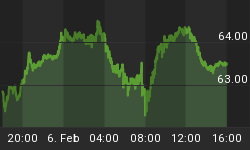A rising stock market, like a rising tide, can cover a multitude of interesting and/or scary things. If the finance guys who really know what's going on are buying, then the disturbing stories that lead each evening's news must be manageable. And we, in general, must be okay.
But let the market fall a bit and those headlines suddenly begin to seem both oppressive and really, really numerous. And maybe we're not okay after all.
To take just a few of the issues that, in the wake of the recent equity correction, now loom large:
Islamic State, the tiny band of religious crazies that the US armed to do its bidding in the Syrian civil war is now threatening to take Baghdad, capital of Iraq and home to a US embassy that will live forever in the annals of hubristic excess. Actually a small, self-contained city, the embassy contains all kinds of sensitive equipment, documents and personnel, and will be defended with (thousands of) boots on the ground if an Islamic State victory appears imminent -- which it now seems to be. In other words, we're getting ready to dump another trillion or so dollars into the hole where we previously dumped two trillion with nothing to show for it but chaos.
Ebola, a nasty virus that was previously polite enough to stay in Africa, has escaped and is now touring Europe and the US. Either it has mutated to become more communicable or the West's protocols for dealing with it are inadequate. Either way, there is now talk of the disease breaking free and causing a First World pandemic. See Ebola pandemic spreading across Europe is 'unavoidable,' WHO warns.
The strong dollar, meanwhile, has had the same effect on the world as would higher US interest rates, slowing growth and causing hot money to leave emerging markets and pour into US Treasuries. So while everyone is waiting for the Fed to raise interest rates and court the traditional "taper tantrum" liquidity crisis, the foreign exchange markets have done the heavy lifting already. See Why a strong dollar is scarier than taper tantrum.
Japan and Europe are dropping into recessions that could easily become system-threatening depressions. While US stocks were rising it was possible to view America as an island of stability in a chaotic world. But when US stocks start to fall it's much easier to envision an interconnected world where everyone feels everyone else's pain. Which is the accurate viewpoint, because who will buy our stuff -- including the bonds that finance our deficits -- if the other major economies grind to a halt?
Junk bonds, typically a canary in the financial-bubble coal mine, began selling off in September, just as the dollar started to spike. This was also easy to ignore while equity prices were rising, but now looks like the first of many dominoes to fall in a financial panic.
And it's October! All of the above happening simultaneously would be scary anytime, but coming in the month when some of the most dramatic stock market crashes have for some reason occurred, this must feel like deja vu all over again for folks with a sense of financial history.
It's impossible, of course, know whether something is a crisis until it becomes one. So this might turn out to be nothing more than a hic-up in the permanent new normal of ever-rising financial asset prices. We'll know soon enough.















